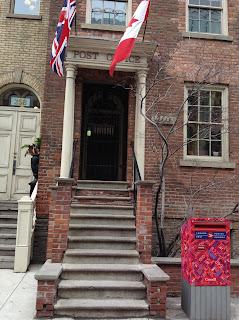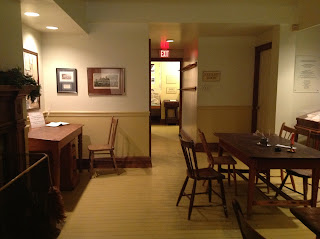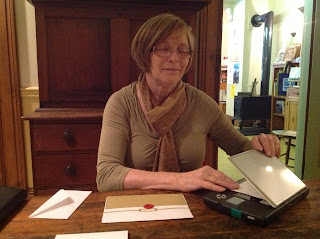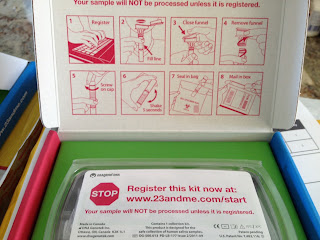 |
| Page from De Bever Journal |
Thanks to Terry Vanderhoof, a translation and transcript of De Bever Journal of May-July 1661 is now on line at The Vanderhoof Project.
You may also view the "passenger list" (the list of names of those who owed passage money) for De Bever at Olive Tree Genealogy Ships Passenger Lists to New Netherland (New York) 1624-1664
I asked Terry to tell us how this project to transcribe the ship's journal began. Here is his answer. Please note that I have taken the liberty of adding links to online passenger lists for any ships Terry mentions, as well as other relevant links.
The Voyage of De Bever
by Terry Vanderhoof
I guess that finding the key to the story of the voyage at 35,000 feet over mid-Atlantic is pretty appropriate, as I've often looked down at the ocean and wondered if De Bever ever sailed in the waters we could see below us. I'd been reading Jaap Jacob's 2005 book "New Netherland: A Dutch Colony In Seventeenth-Century America" during the flight to New York and noticed an intriguing reference to the "Ship's Logs Gulden Bever, Gulden Otter, Hoop and Roseboom 1660-1663" This was puzzling for, in the years I'd been researching the Vanderhoof family, no mention of a log for the Bever voyage had ever been mentioned. The bibliography of Jaap Jacob's subsequent book "The Colony of New Netherland : A Dutch Settlement in Seventeenth-century America" (2009) gave more detail, giving as a source an article in De Halve Maen of January 1968 by Dr Kenneth Scott .
Scott's article was based on a partial translation of an original document held by the New York Historical Society "Journael Behouden opt'schip den Gulden Bever en t'schip den Gulden Otter" but, for reasons of space, Dr Scott only included a summary of each voyage in the article and omitted much of the routine positional and weather details.
The NYHS were very helpful but were in the midst of a major refurbishment project and unable to provide any copies for several months. So, we had to make do with an image of the first page of the Journal from their online catalogue and make a start decoding the handwriting and making sense of some of the abbreviations and nautical terms. Scott's article revealed that the original 37-page journal contained descriptions of four voyages based on notes kept by an unknown author, probably an employee of the Dutch West India Company
* First Voyage : The Vergulde Otter 10 Oct 4 Dec 1660 New Amsterdam to Texel.
* Second Voyage : The Vergulde Bever 9 May 29 Jul 1661 Texel to New Amsterdam (on which the party from Beesd travelled)
* Third Voyage : The Hoop 8 Sept - 26 Oct 1662 New Amsterdam to Texel.
* Fourth Voyage : The Rooseboom 30 Mar 3 June 1663 Texel to New Amsterdam
In early 2012, the scans of the part of the Journael describing the 1661 voyage of De Bever arrived and we were able to continue the project. Helped by a number of Nederlands speakers from
the Historische Kring West Betuwe, the archivists at the Regional Archief Rivierenland at Geldermalsen/Tiel and the staff of the Sheepvaartmuseum in Amsterdam, a transcription and translation of the account of the 1661 voyage of De Bever emerged. The handwriting was pretty readable for the period - most likely copied at a later date from rough notes kept at sea - and we managed to decode most of the technical seafaring terms with a good deal of help. As always, direct translations from Dutch to English aren't always possible and we hope we have reached a reasonable balance between readability and faithfulness to the original text.
One major revelation was that De Bever hadn't taken the 'traditional' route via the Caribbean but had first headed for the north of Scotland, attempting to reach the Atlantic via the straits north of the Orkney Islands. This decision was probably made because of the uneasy state of relations between Portugal and the Netherlands at the time but almost ended in disaster as De Bever and her companion the St Jan Baptist were caught in a storm in the Moray Firth.
As always, opening one door reveals a whole row of new doors to be opened and now that some details of the voyage are clearer, many further questions need to be asked. How was the voyage planned? How did the 37 folks from Beesd get to Amsterdam? How long did they stay there? What was the induction and boarding process? What was life on ship like?
Hopefully, some of these questions will be answered in the near future.














.JPG)

